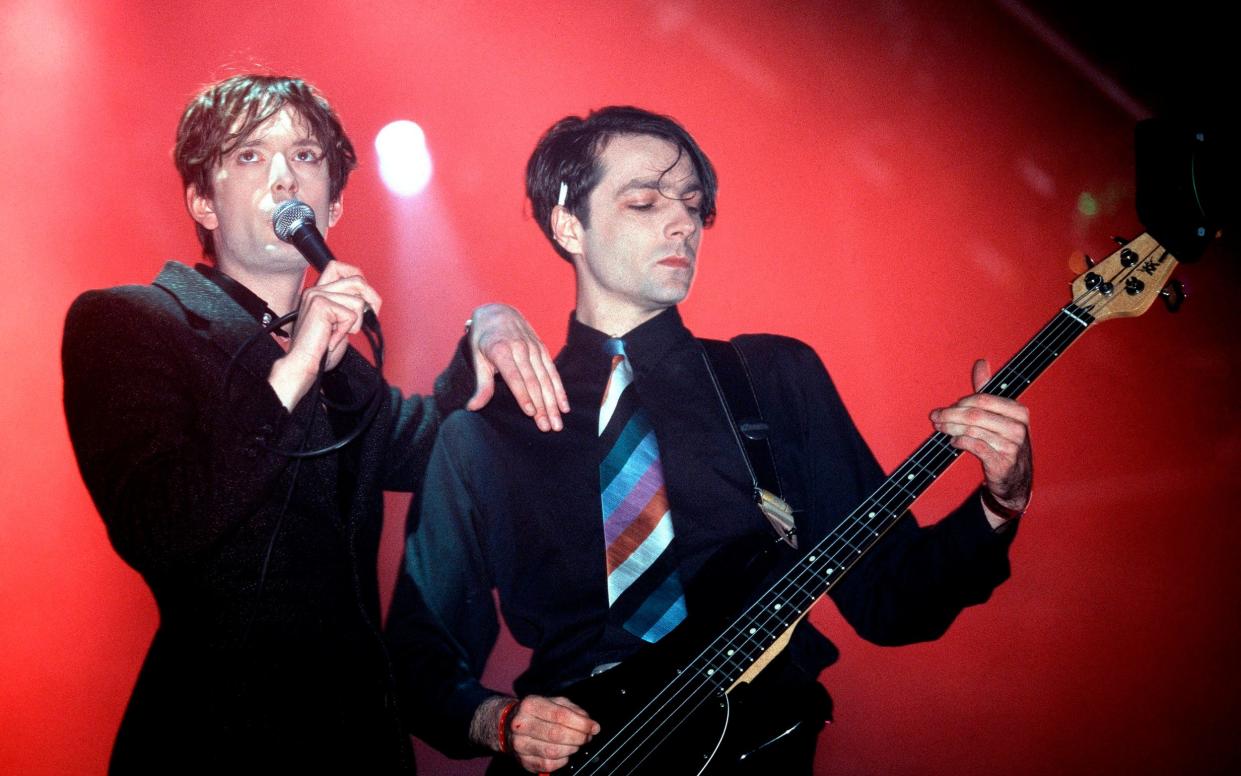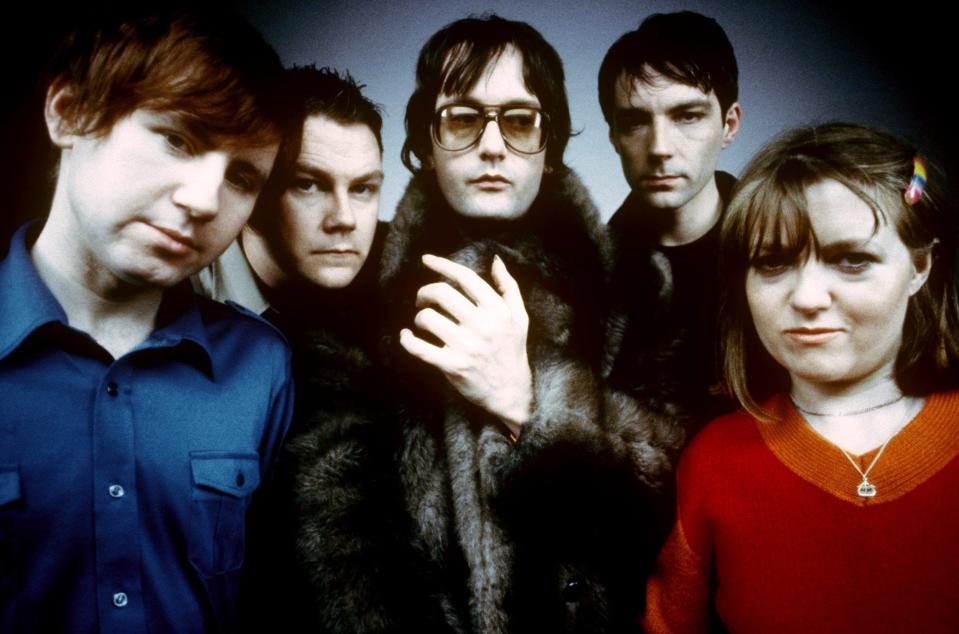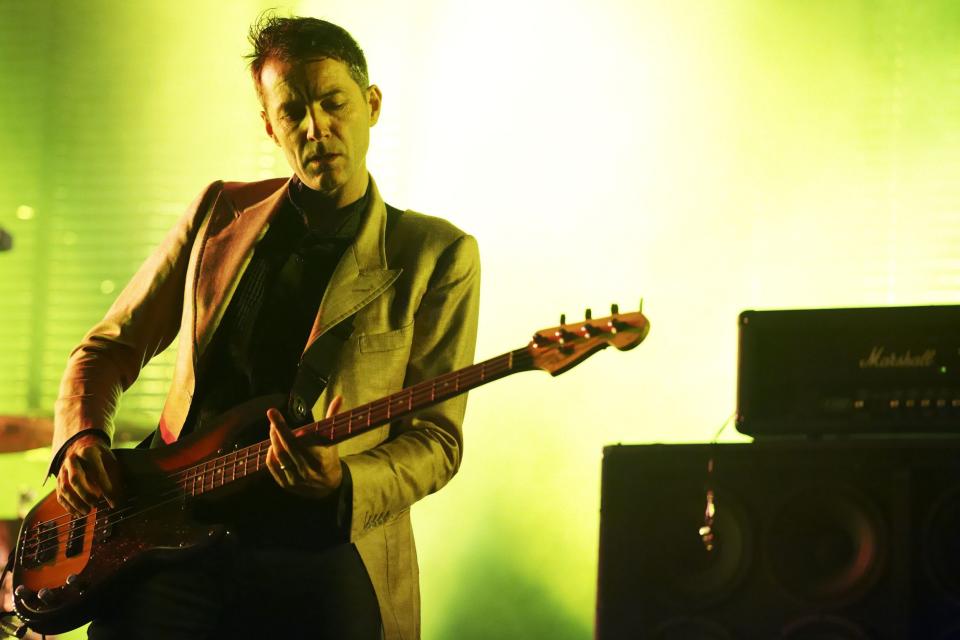Steve Mackey, bass guitarist with Pulp, darlings of Britpop – obituary

- Oops!Something went wrong.Please try again later.
- Oops!Something went wrong.Please try again later.
Steve Mackey, who has died aged 56, was a musician best known as the bassist with Pulp, who rode the Britpop wave in the 1990s with hits like Common People and Disco 2000; he was also a producer and songwriter, working with acts including Arcade Fire and Florence + the Machine.
Stephen Patrick Mackey was born in Sheffield on November 10 1966, the son of Paul Mackey and Kathleen, née Harrison, and was an early schoolmate of another future Sheffield music figure, the singer and songwriter Richard Hawley (who went on to spend time in Pulp’s touring band).
He went to Hinde House Comprehensive then Richmond College of Further Education, while playing bass for a local group, the evocatively named Trolley Dog Shag, who featured alongside Pulp and others on a 1987 compilation cassette produced by Dolebusters, an organisation set up to help unemployed musicians in Sheffield.
An aspiring filmmaker, the following year Mackey moved to London, graduating with an MA in Film from the Royal College of Art. Then in 1989 he joined Pulp, who had been formed 11 years earlier in his home town; he was recruited by the band’s singer Jarvis Cocker, with whom he had shared many a spliff on the Sheffield scene over the years, and who had also gone down to London to study.
It did not seem like the perfect match – “They seemed quite self-contained, quite aloof, and I was in really noisy bands, garage bands, and Pulp were like an art band,” Mackey recalled. “It didn’t seem very welcoming.”
But the chemistry worked: joining Cocker on vocals, Russell Senior on guitar (replaced in 1995 by Mark Webber), Candida Doyle on keyboards and Nick Banks on drums, Mackey made his Pulp debut on their third album, Separations (1992). Like its predecessors it failed to chart, but it did lead to a deal with Island, and in 1994 His ’n’ Hers reached the Top Ten, while the second single taken from it, Do You Remember the First Time?, gave them their first Top 40 hit.

The following year, Different Class proved true to its name, elevating the band to a new level; packed with hits, it camped out in the No 1 slot, won the Mercury Prize and went quadruple platinum.
That summer came the apogee of Pulp’s career. When the Stone Roses guitarist John Squire broke his collarbone in a mountain biking accident in California, the Madchester rockers were forced to pull out of their Saturday headline slot at Glastonbury – and Pulp stepped in with a storming set that sent them into the Britpop stratosphere alongside Oasis (who had headlined the previous evening), Blur and Suede.
“That was the first time we realised that more than a few people liked us,” Mackey recalled. “It was a turning point when we were doing Common People and everybody was singing along, and it was quite deafening and emotional.”
This is Hardcore (1998) also topped the UK charts, then after Mackey’s fifth album with the band, We Love Life (2001), Pulp, who by then had sold around 10 million albums, took a long break.
Over the next nine years Mackey maintained a fierce work rate: aside from working on Cocker’s solo projects, he formed a songwriting and production partnership, Cavemen, with Ross Orton. They worked with the rapper M.I.A., the Horrors, the Kills, Kelis and Cornershop.
Mackey also produced a couple of tracks on Florence + the Machine’s 2009 debut album, Lungs, and later joined Thomas Bangalter, of Daft Punk fame, in producing Arcade Fire’s 2017 album Everything Now.

He curated the music for the Frieze Art Fair in the 2000s, and became known for his photography, working with such fashion houses as Miu Miu, Armani and Schiaparelli. He also directed videos for the likes of Hot Chip and Sleaford Mods and collaborated with galleries including the Louvre, and MOMA in New York.
In 2005 Mackey appeared in the film Harry Potter and the Goblet of Fire as one of the Weird Sisters band alongside Cocker, plus Jonny Greenwood and Phil Selway of Radiohead on guitar and drums.
In 2010 he joined the Pulp reunion, playing the Isle of Wight and Reading festivals, as well as returning to Glastonbury, but he declined to sign up to the most recent revival.
Steve Mackey is survived by his wife Katie Grand, founder of the fashion magazine LOVE, whom he married in 2009, and a son from a relationship with the artist Zoe Grace.
Steve Mackey, born November 10 1966, died March 2 2023

